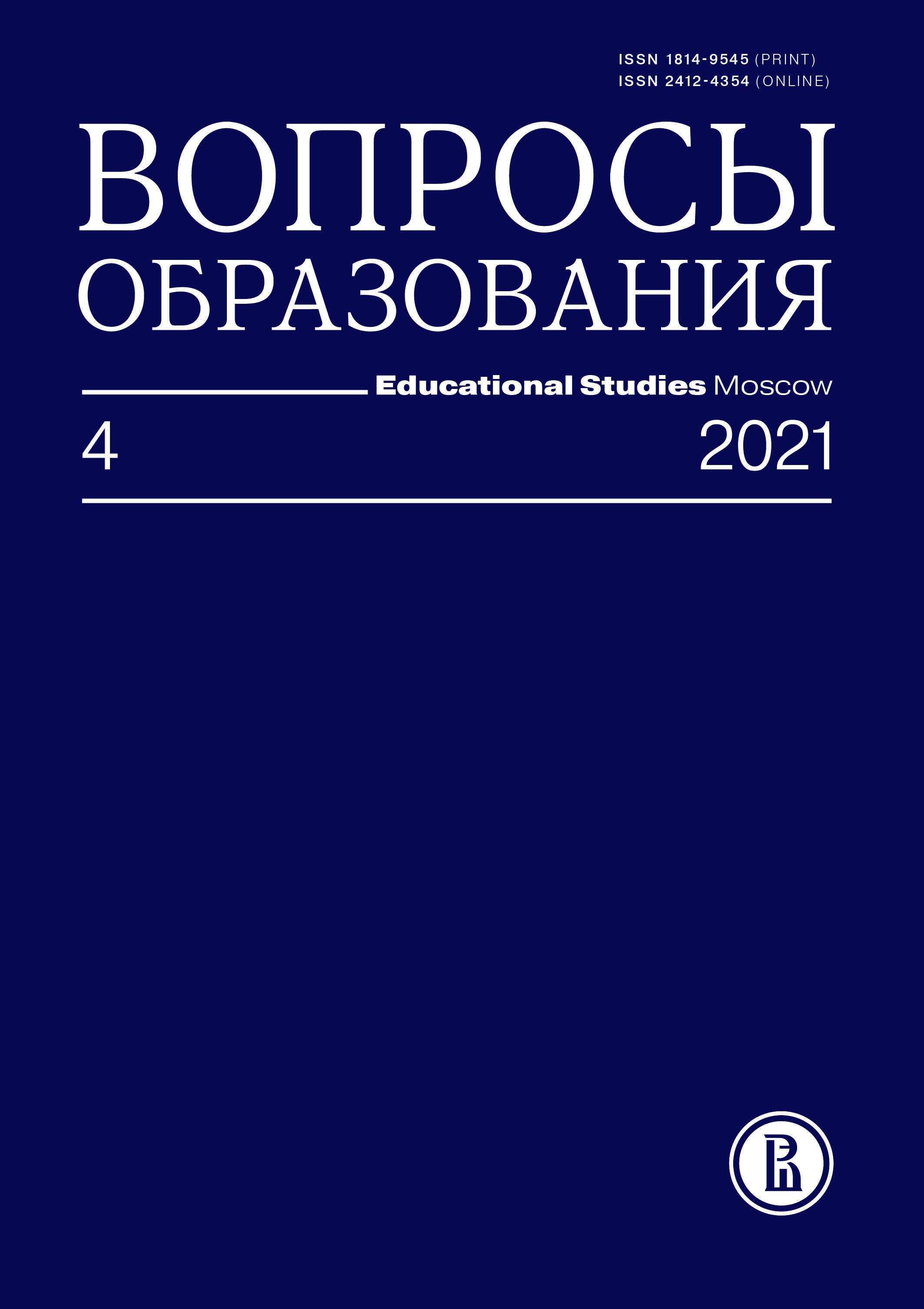Вызовы интернационализации для российского высшего образования: влияние пандемии COVID‑19 на образовательный опыт иностранных студентов
Аннотация
Пандемия COVID‑19 создала серьезные риски для интернационализации высшего образования. Ограничения передвижений между странами, финансовая нестабильность, введение дистанционных форматов обучения осложнили положение иностранных студентов. Эмпирической основой исследования послужили данные, полученные в ходе всероссийского опроса студентов, который проводился в июне-июле 2021 г. в рамках проекта «Научно-методическое обеспечение развития системы управления качеством высшего образования в условиях коронавирусной инфекции COVID‑19 и после нее». Авторы анализируют восприятие иностранными студентами дистанционного формата обучения, его качества, сложностей при его реализации. Их ответы на вопросы анкеты дают основания судить о рутинизации процесса их адаптации к сложившимся условиям обучения. Среди достоинств дистанционного формата обучения иностранные студенты прежде всего выделяют логистические: мобильность, сравнительную экономичность, оптимизацию временных затрат. Коммуникативные ограничения, связанные с режимом дистанта, оцениваются ими по большей части негативно. Иностранные студенты воспринимают себя как более уязвимую по сравнению с российскими студентами категорию учащихся и очевидно тяготеют к очному формату обучения. Авторы приходят к выводу, что иностранные студенты в большинстве своем готовы к получению образования в смешанном формате, но дистанционные формы коммуникации и обучения по отношению к ним требуется применять с большей осторожностью, чем к российским.








